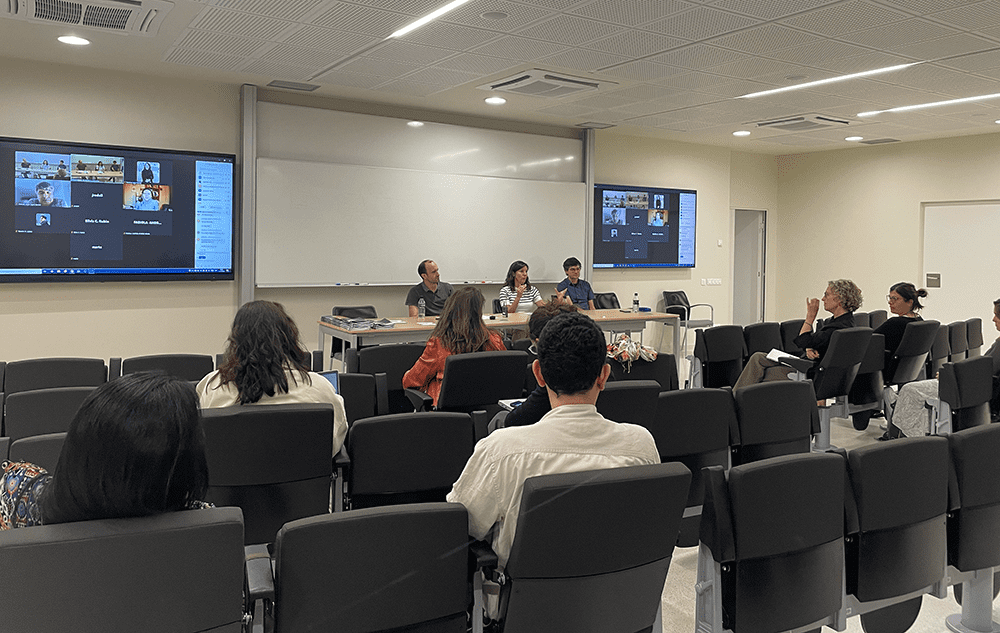The Bioethics and Law Obs.
Master in Bioethics and Law
UNESCO Chair in Bioethics
Contact
- Bioethics and Law Observatory
- UNESCO Chair in Bioethics
- University of Barcelona
- Faculty of Law
- Ave. Diagonal, 684
- 08034 Barcelona
- (+34) 93 403 45 46
- obd.ub@ub.edu
- Master in Bioethics and Law
- (+34) 93 403 45 46
- master.bd@ub.edu
The ethical dilemmas of the organoid research, submitted for debate in a seminar organized by the Bioethics and Law Observatory

On June 11, 2024, at the Faculty of Medicine and Health Sciences of the University of Barcelona, the seminar “Research with Organoids” took place as part of the project “Unsolved boethical issues in the review of healthcare research and innovation based on artificial intelligence, genetic technologies and personal data (BIOEVAINNOLAW)” (PID2022-138615OB-I00), funded by the Ministry of Science, Innovation and Universities of the Government of Spain, with Dr. Itziar de Lecuona as the principal investigator.
The invited researchers Daniel Tornero (professor in the Department of Biomedicine and researcher at the Institute of Neurosciences at the University of Barcelona) and Sandra Acosta (professor of Human Embryology at the Faculty of Medicine and Health Sciences and director of the Functional Neurogenomics Laboratory at the University of Barcelona/IDIBELL) presented their advances in neuroorganoids. Furthermore, Pau Sancho-Bru (researcher at the August Pi i Sunyer Biomedical Research Institute - IDIBAPS) spoke about liver organoid research.
The convergence of technologies such as artificial intelligence was discussed, a situation that we are also interested in analyzing to determine the methodological, ethical, legal, and social aspects that can be affected, with the aim of contributing to research and future applications for personalized medicine. Likewise, the limitations that could arise from the bioethical concerns associated with the use of these biological structures were also discussed.
During the last part of the seminar, a dialogue was initiated between the speakers and various researchers and academics collaborating with the Bioethics and Law Observatory of the University of Barcelona, which allowed for a sharing of views and an interesting debate on the unresolved issues pertaining to research with organoids in the biomedical and health fields. These issues include the imperfect regulation of the use of embryonic stem cells and induced pluripotent stem cells, the use of human-origin tissues, the impossibility of anonymizing certain samples for various reasons, either due to the objective pursued or the peculiarities of rare diseases and the dilemmas they pose to researchers regarding the creation of organoids.
There was also a noteworthy debate about neuroorganoids and their potential emerging properties in the context of creating neural networks. Regarding animal research, the possibility of reducing its use in light of new developments was discussed. Organoid biobanks and their ethical and legal framework also occupied part of the seminar.
In conclusion, the seminar on organoid research and its multidisciplinary approach has made it possible to identify the specificities that must be considered for the proper evaluation of research projects that develop and use human-derived organoids, and in which other technologies such as artificial intelligence and genetic technologies also converge.




